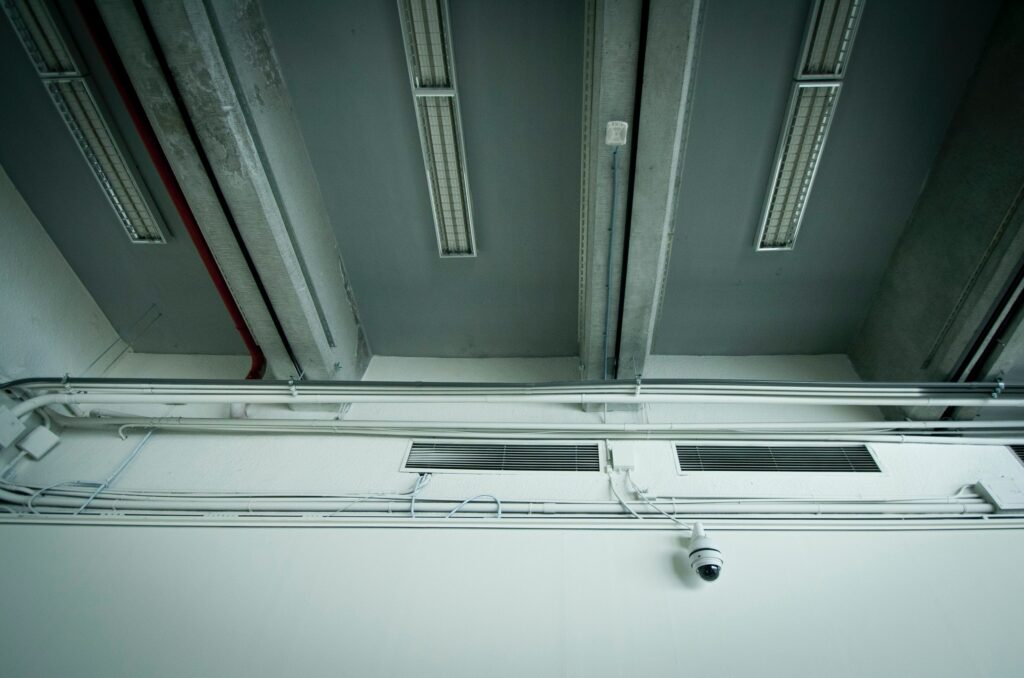Tips To Increase the Airflow in Air Ducts

Everyone loves a perfectly cool house during summers and a toasty environment in winters. Sometimes, your HVAC system does not work as efficiently as you wish to. While there can be many issues with your heating and cooling unit, a significant problem that you face is restricted airflow. Hence, this article will illustrate some valuable tips to increase the airflow in the air ducts.
Table of Contents
How Do You Know There is a Problem with Airflow?
Suppose you have cold or hot areas or rooms in your home that do not cooperate with your HVAC system. And you feel uncomfortable in those areas. It shows that there is a problem with the airflow of your HVAC unit.
What are the Common Causes of Limited Airflow?
One of the most common causes of limited airflow is the clogged vents. Hence, it would help if you immediately got the ducts checked to identify any blockage. For this, you should contact Air Duct Cleaning in Alpharetta.
However, enlisted below are the other reasons for blocked vents:
Closed Damper Valve
Dampers are one of the primary airflow regulators of your HVAC unit. They function similar to grills as they direct airflow within the building. If a specific region requires more air, it can block off or open routes to facilitate the reach. Your thermostat controls these, and if they disfunction, you should immediately contact expert HVAC Cleaning in Alpharetta.
Filthy or Clogged Ducts
Air filters play a major role in keeping your indoor air quality clean. They filter out the dirt and filth so that you can enjoy clean air. However, filters get dirty and blocked if they are not cleaned or replaced regularly.
Dripping Ducts
You should properly seal your HVAC system. However, you should only exclude the entry and exit points. Your system loses pressure if your vents are damaged with holes, gaps, or leakages. Hence, it makes it difficult for the air to pass through the system and leads to weaker airflow.
Distorted Flex Ducts
The air in your HVAC system passes through various ducts to reach every corner of your home. The vents are of different shapes, sizes, and materials. There are hard metal ducts. Many flex ducts can easily bend to spread across the building. As it is a soft material, it is more vulnerable to damage than hard ones. If you observe a damaged flex duct, you should immediately call a professional to fix the issue.
MERV of Air Filters
Your airflow may be affected by the MERV (Minimum Efficiency Reporting Value) rating of the filters. A high-rated filter means that fine particles are also refined, which causes filters to get quickly clogged.
What are the Tips to Increase the Airflow in the Air Ducts?
Never Seal Vents or Registers
One straightforward way to enhance the airflow of your ductwork is to inspect the vents and registers in each room. Try to keep all registers open, even if you don’t need cooling or heating in that area of the home. If you close the registers, it places extra pressure on your HVAC unit to move the conditioned air all around. Hence, it can worsen the airflow issues.
However, if you feel that many rooms in your home do not require regular heating or cooling, you should talk to an HVAC expert. They will assist you regarding the zoning system. They will create zones within your heating and cooling unit that will provide better control over temperature and airflow without sacrificing efficiency.
Use Ceiling Fans
Another excellent solution for enhancing airflow is to use your ceiling fans. In summers, you should ensure that your ceiling fans rotate in a counter-clockwise direction as it helps circulate cool air in a better way. It helps create a wind-chill effect that immediately evaporates your sweat and makes you cool.
Although ceiling fans cannot lower the temperatures, the wind-chill effect they create helps you turn up your thermostat. So, if you increase the AC temperature by four degrees, you won’t compromise your comfort level. Hence, you will be able to save energy and bills.
Regular HVAC Maintenance
Regular HVAC maintenance by professionals is necessary for the efficient functioning of your system. You may tend to ignore an annual AC tune-up if your system is new. However, it will significantly impact the functioning of your system.
When you call professionals for an annual HVAC maintenance, they:
- Examine and clean the system internally and externally
- Test operations
- Clean accumulated filth
- Disinfect the system
- Repair issues that may hinder optimum functionality of the system
- Replace air filters with efficient ones (higher MERV rating). You should try to change the filters every month during summers and replace them after three months during other times of the year.
Ductwork Cleaning
Your HVAC filters are meant to trap dust, debris, filth, contaminants, pollutants, and other aerial particles that may enter the system. Also, ductwork in your home may have some cracks, fissures, or leaks that may allow dust, mold, or other filth to enter the system.
With time, these airborne particles, germs, and pollutants can build up within the system and hinder the proper airflow of your ductwork. But the great news is that ductwork cleaning is an easy and effective solution to this issue. If you notice excessive dust or limited airflow, you should immediately contact a reliable HVAC contractor for cleaning services.
Install a Ventilator
In most cases, a highly effective way to enhance airflow is to install a good-quality Energy Recovery Ventilator (ERV). This device helps swill down the stale air and pull in the fresh air, allowing air to flow freely within your home.
ERVs are highly effective in improving the HVAC airflow. Moreover, it helps control humidity levels and keeps your environment more comfortable. Also, they trap energy from external air and use it to pre-condition the incoming air. It places less pressure on your heating and cooling system and boosts overall efficiency.







